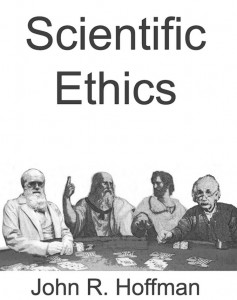This topic of Scientific Ethics bridges two distinct disciplines, with their own individual perspective on viewing the world.
This mini-lecture provides an overview of the lecture topics, objectives, and assignments for Unit 1: Introduction to Science and Ethics. The handout for this presentation can be downloaded and printed.
Scientists view the world as something to be explained, explored, and in some cases emulated. The basic principle that scientists use is the concept that the world around them follows basic natural laws so that events are predictable. In their approach to studying the world, scientists develop technologies allowing them to conduct experiments – to manipulate a situation and observe the outcome. These new technologies introduce new questions as things that once seemed impossible become possible.
An ethicist applies general principles that govern the behavior of individuals and groups in order to determine what activities are morally correct. Differences is perspective arise from divergent basic principles and contribute to many of the controversies observed in political and social interactions.




Reach me at: